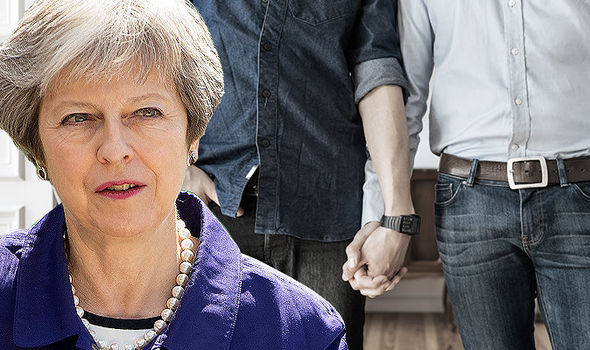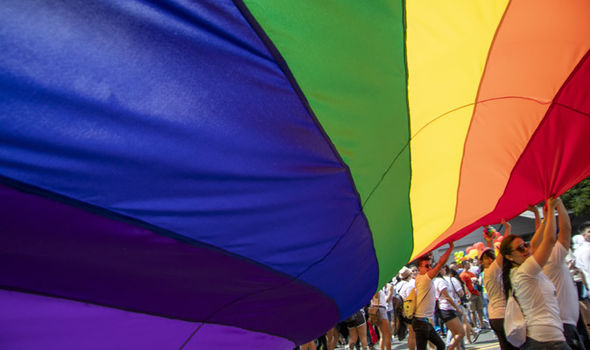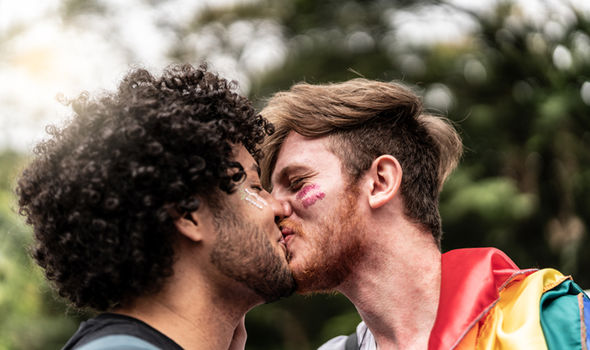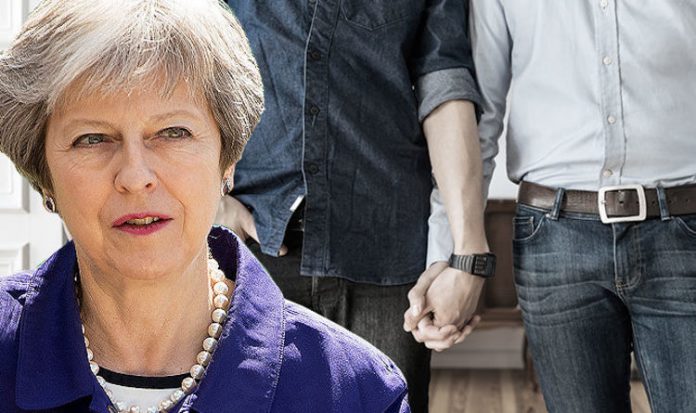[ad_1]
 GETTY
GETTY
This LGBT action plan will set out concrete steps to deliver real and lasting change across society.
Pledges in it include ending “abhorrent” practices like “conversion therapy”, also known as “gay cure”, where people undergo pressure ranging from so-called “counselling” to violent “exorcism” and even “corrective rape”, in a bid to force them to be heterosexual.
The world’s largest ever survey of LGBT people, published today by the Government, showed 2 percent of the more than 108,000 people taking part had undergone such therapy, and 5 percent were offered it but did not take it up. Faith groups were responsible for half the instances.
The action plan promises: “We will act so that LGBT people feel safe in their own homes and in their communities.
“We are not prepared to stand idly by as harmful practices such as conversion therapy happen in our country.
“These activities are wrong, and we are not willing to let them continue. We will fully consider all legislative and non-legislative options to prohibit promoting, offering or conducting conversion therapy.”
Women and Equalities Minister Penny Mordaunt said: “It is deeply worrying … that so many LGBT people are being offered the abhorrent practice of conversion therapy.”
The Government is also promising to improve the police response to anti-gay hate crime, with 40 percent of those surveyed saying they had experienced at least one negative incident linked to their sexuality in the last year involving someone they did not live with.
More than two thirds, 68 percent, of respondents said they had avoided holding hands in public with a same-sex partner for fear of a negative reaction from others and 70 percent said they had avoided being open about their sexuality, for the same reason.
 GETTY
GETTY
The Government is also promising to improve the police response to anti-gay hate crime.
We can be proud that the UK is a world leader in advancing LGBT rights, but the overwhelming response to our survey has shone a light on the many areas where we can improve the lives of LGBT people
Nearly a quarter, 23 percent, said work colleagues had reacted negatively to them being LGBT.
Mrs May commented: “We can be proud that the UK is a world leader in advancing LGBT rights, but the overwhelming response to our survey has shone a light on the many areas where we can improve the lives of LGBT people.
“I was struck by just how many respondents said they cannot be open about their sexual orientation or avoid holding hands with their partner in public for fear of a negative reaction.
“No one should ever have to hide who they are or who they love.
“This LGBT action plan will set out concrete steps to deliver real and lasting change across society, from health and education to tackling discrimination and addressing the burning injustices that LGBT people face.”
Other proposals include appointing a national LGBT health adviser to improve access to health services, and programmes to tackle bullying in schools and colleges.
Surrogacy laws will be revised to enable single people, including LGBT, to become legal parents of a child born to a surrogate.
The Government is also today publishing its long-awaited consultation on how to reform the law on people changing their legal gender from the one they were assigned at birth, which currently requires a doctor’s approval.
 GETTY
GETTY
Surrogacy laws will be revised to enable single people, including LGBT, to become legal parents.
Previous calls to let people “self identify” sparked fears of men just claiming to be trans-gender to access female-only areas like women’s toilets, changing rooms, and prisons.
New Equalities Minister Ms Mordaunt, the International Development Secretary, is more cautious and has promised not to change the law on single-sex spaces.
Gay rights campaigner Peter Tatchell said: “The LGBT Action Plan is a welcome start but it falls short on key issues.”
These included the “insultingly” low allocation of £4.5million; failing to promise to end detention and deportation of LGBT refugees fleeing violently homophobic countries like Uganda, Iran, Russia, Egypt and Jamaica; and the absence of a commitment to compensate gay and bisexual men whose lives were “wrecked” by convictions under past anti-gay laws.
[ad_2]







